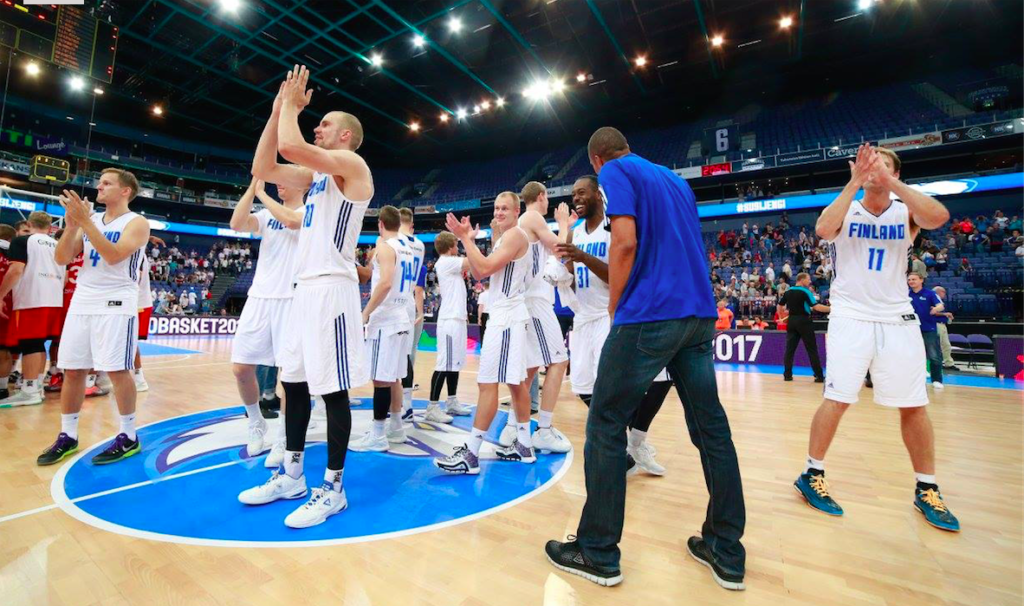Yes, you read that correctly. Identifying the psychological variables that help athletes achieve peak performance and success is an essential goal in the field of sports psychology.
Why DISC Profiling Matters for Athletes and Sports Teams
The area of sports psychology has grown strikingly in the past two decades. Also, the discovery of psychological constructs that help athletes achieve peak performance, defined as the “superior use of human potential” (Privette, 1981) and “outstanding accomplishments” (Jackson & Roberts, 1992) has led to advancements in the understanding of success in a wide range of sports and athletics. One research study involving peak performance and successful athletes showed that the psychological profile of peak performing athletes included high self-confidence, energy, feelings of control, concentration, positive attitudes, determination, and commitment (Krane & Williams, 2006).
Using Psychometric Tests to Enhance Player Self-Awareness
Psychometric Tests are one of the quickest and most effective ways to help build the self-understanding of sports players and athletes. DISC behavioural profiles can be used to understand how to perform consistently and aid in the selection models of successful athletes.
Of course, this doesn’t just apply to sports teams, an Extended DISC® profile can be used to develop your self-awareness as a coach, manager or athlete. Forward-thinking business coaches and consultants also understand the power of Psychometrics in developing effective teams in business environments.
Improving Team Dynamics with Extended DISC Assessments
Obviously, there is more to merely understanding the behavioural style of the individuals in a sport’s team, but it is an essential component of a successful team.
We all know that fitness is a significant contributor to success, but many studies in sport’s psychology (and the experience of those of us who have competed at the top level) know that just one “misfit” can impact on a team’s performance. This is the reason that sometimes the most successful team is not one that is comprised of “rock stars” but those who are willing to work together as a team. So DISC assessments really help us in understanding team dynamics.
I was fortunate to have a courtside seat a few weeks’ ago in Helsinki to watch the Finland v Sweden basketball teams clash, with my good friend Jukka Sappinen (CEO of Extended DISC® International). Jukka introduced Extended DISC® Assessments to the head coach of the national team. He considers sports as excellent fields for applications of DISEC Profiling. As Jukka correctly points out, you cannot measure success in the business world quite the same way as you can in sports. His view is that the most competitive, top-level sports are a perfect setting to further develop and enhance DISC tools and assessments.

How Coaches Benefit from Understanding Player Behaviour
Henrick Dettmann, the head coach of the Wolf Pack (the name by which the Finnish team is known) said, “You play the way you are” is one of my favourite sayings. The most gratifying part of our co-operation with Extended DISC® has been the increased understanding and acceptance of diversity. The human innate behavioural patterns extend all the way to the game”.
He goes on to say….
“Extended DISC® Assessments help in both player and coach evaluations and in the understanding of the relationships between people. These are all critical issues in building a successful sports team”.
And he can speak with experience. The team was not even globally ranked when he accepted the role as head coach. Now they are in the top ten in Europe.
Achieving Peak Performance Through Communication and Collaboration
The distinguishing factor of the most successful people in sport is their constant pursuit for the competitive edge. Top athletes and sportspeople value the importance of communication, teamwork and consistent personal and professional development. Coaches use Extended DISC® assessments to help enhance players development in these areas, as they know, focus on these areas produce results in the best outcomes and ultimately winning. Getting the ‘people side’ results in the highest performances being achieved.
Jukka’s approach can be summarised in the following statement…..
“In my view, our mission is to help the coaching staff to understand what they can expect from their players and how the individual players can be assigned into roles that best serve the team’s common purpose. Similarly, we help players blend into a one, strong team, where everyone can be successful with their individual strengths and style. We are all unique individuals and creating a broader and deeper understanding between athletes proactively prevents conflicts and helps the team achieve a common goal”.
It really isn’t that much different in a business environment!
And the result of the game? Finland won by two points in the last few seconds!
Want to unlock peak performance in your team?
Discover how Extended DISC® can strengthen communication, teamwork, and results for athletes, coaches, and sports professionals.




